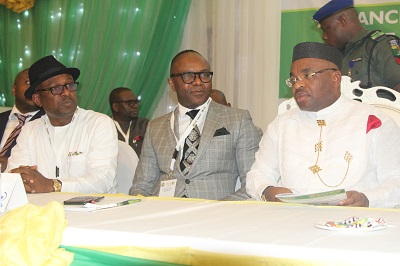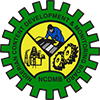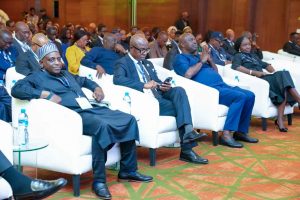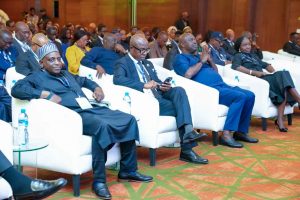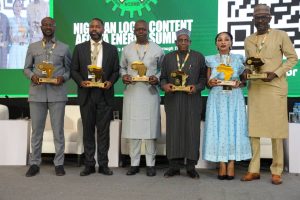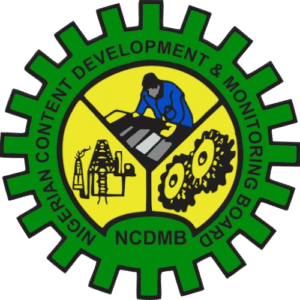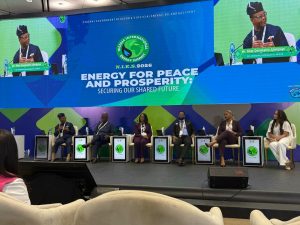…Security key to Local Content Development -Kachikwu
An outlook of upcoming activities across the upstream, midstream, and downstream sectors of the Nigerian oil and gas industry would be out in two weeks according to the Nigerian Content Development and Monitoring Board (NCDMB). This compilation is the key outcome from the Nigerian Oil and Gas Opportunity Fair (NOGOF) which ended on Thursday in Uyo, Akwa Ibom State, with the theme, “Advancing Indigenous Participation in the Nigerian Oil and Gas Industry for National Development.”
 Companies across the value chain discussed their forthcoming projects at the fair, complemented by presentations by the Department of Petroleum Resources (DPR) Nigerian Ports Authority (NPA) Nigerian Customs Service (NCS) and ancillary agencies of government.
Companies across the value chain discussed their forthcoming projects at the fair, complemented by presentations by the Department of Petroleum Resources (DPR) Nigerian Ports Authority (NPA) Nigerian Customs Service (NCS) and ancillary agencies of government.
The compendium of opportunities will guide international and local service companies in making strategic investment plans, with a view to maximize the domiciliation of activities and enhance in-country value retention.
It will also assist the NCDMB to identify high impact activities with potential for employment generation, training, in-country value addition, and revenue retention for support and inclusion in her 5-year roadmap thereby further cementing the sustainability of Nigerian Content development and implementation.
The two-day NOGOF event was attended by major stakeholders of the industry, including the Minister of State for Petroleum Resources, Dr. Ibe Emmanuel Kachikwu, Managing Directors of Exxon Mobil, Total Upstream, Chevron Nigeria and Addax. There were also high level representations for the Group Managing Director of the Nigerian National Petroleum Corporation (NNPC) and the Managing Directors of Shell Petroleum Development Company of Nigeria and Nigerian Agip Oil Company.
In his welcome address, the Executive Secretary of NCDMB, Engr. Simbi Wabote remarked that “while the Board and industry had made giant strides especially with respect to developing capacity in-country, upgrade of existing facilities and establishment of new facilities, there had not been an alignment of the capacity being established with the demand/ opportunities available.”
Instead, companies and investors often acquired assets and facilities to pursue short term opportunities based on trends they had seen in the industry, he said.
This scenario, he regretted, “had resulted in overcapacity in some areas where in-country facilities scrambled for available work while there was lack capacity in some other areas resulting in exporting of work scopes abroad with the attendant loss of revenue and jobs.”
Wabote listed the objectives of NOGOF to include “showcasing opportunities in the upstream, midstream, and downstream sectors of the oil and gas industry, present available and planned capacity in-country, provide multi-nationals the opportunities to link up and utilise in-country and enable Nigerian companies tailor their business strategies towards exploiting available opportunities.”
According to him, the Board had adopted a 100 days target for completing its aspects of the contracting processes in line with the 6 months contracting cycle time set out by the Honourable Minister of State for Petroleum Resources.
He stated further that recent assessment visits to oil and gas facilities and assets around the country had provided the Board’s management with updated knowledge about the scale and size of capacities and capabilities available in-country as well as plans of some service providers to scale up their capacities. “It is imperative that we patronise and utilise these facilities to encourage current and aspiring investors.”
The Executive Secretary also revealed that the Board has issued directives that electrical cables procurement, coating of all line-pipes and threading of Oil Country Tubular Goods (OCTG) must be carried out in Nigeria. “Similarly, all in-country capacity must be exhausted before approval will be given for procurement of Line-Pipes outside the country.”
In his speech at the event, the Minister of State for Petroleum Resources, Dr. Ibe Emmanuel Kachikwu highlighted the importance of the fair, noting that the outcome would enable service companies in the industry choose areas of specialization and prevent overcrowding in certain fields.
According to him, “The greatest problem of the Nigerian space is overcrowding. There are tonnes and tonnes of opportunities but we must succeed in creating business models.”
He also underscored the importance of security to the development of local content and reported efforts he and other top government functionaries had made to mobilize support around the country for peace initiatives in the Niger Delta, which had started yielding positive results.
“A lot of work still needs to be done. If you want local content, you have got to provide the enabling environment.”
Also speaking, Governor, Akwa Ibom State, Mr. Udom Emmanuel, stressed the need for deliberate efforts by government and oil companies to boost local capacity in the industry and enhance security.
According to him, “We have paid lip service to the issue of capacity building over the years. We need to transfer technology by building skills development centres in the region,” he said, urging oil companies to partner the state government to achieve this.
In his goodwill message, the Chairman, House of Representatives Committee on Local Content, Hon Emmanuel Ekon commended the Board for organising the Nigerian Content Opportunity Fair, which he described as the first time operating companies would inform service companies of projects to expect. He advised service companies to make good use of the opportunities, stressing that Nigerian Content was for companies that have built capacity and ready to deliver value.
Discover more from Nigerian Content Development & Monitoring Board
Subscribe to get the latest posts sent to your email.
